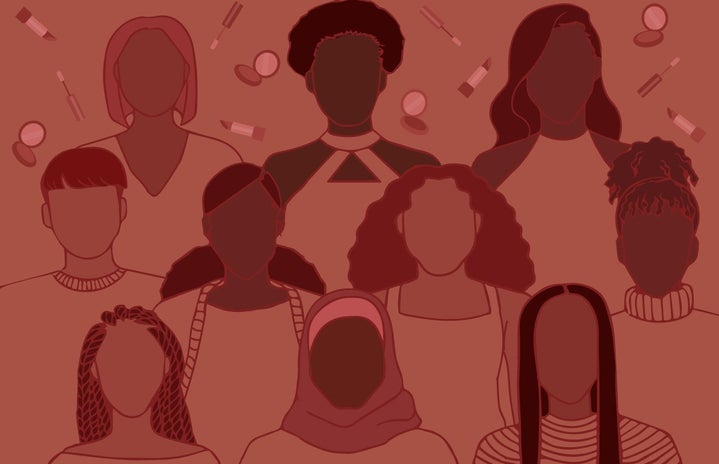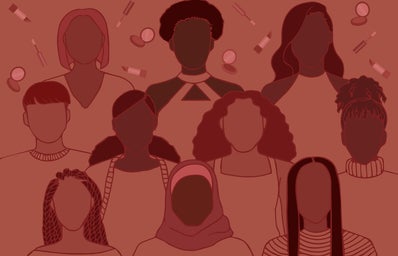2020 exposed crippling inequalities in every facet of society. Nonetheless, we took huge strides for women’s rights. From greater representation in the spheres of politics and science to new laws that guarantee fundamental dignity for women of all ages, here are ten times we took a step closer towards gender equality in 2020.
- Survivors made their voices heard
-
It takes great courage for survivors of gender-based violence to come forward publicly and 2020 had numerous women and men exposing perpetrators of violence in society. From rape victims belonging to the Dalit or “untouchable” community, the lowest caste in India’s four-fold caste system, and African American women who are at disproportionately higher risk of sexual violence to survivors whose credibility was questioned while accusing a music mogul of assault and a survivor taking international legal action asking her country to ensure stricter laws, there were countless stories of abuse from men and women of all ages and social and economic backgrounds.
- Scotland makes period products free for all
-
The Scottish Parliament unanimously made period products free for all in November, making Scotland the first country to allow free and universal access to menstrual products such as tampons and pads. This move is a groundbreaking and major success for the global movement against period poverty. With nearly 1 in 5 American girls missing school due to the lack of period protection, an estimated 50% of school-age girls in Kenya not having access to sanitary products, and 12% of India’s 355 million menstruating girls not being able to afford period products, it is evident that the world needs to do better to rid women of period poverty. This policy serves as an example for other countries that providing fundamental dignity, equality, and human rights to women isn’t a far-fetched dream.
- Female leaders prove they get the job done in the pandemic
-
In a study comparing countries with similar socio-demographic and economic characteristics (GDP per capita, population and population density), the World Economic Forum found that female-led countries performed far better in terms of both fewer cases and deaths. Whether it was New Zealand under Jacinda Ahern, Germany under Angela Merkel or Finland under Sanna Marin, women have proved their mettle as exceptional leaders during the pandemic. On the other hand, men in positions of power like Donald Trump and Boris Johnson set bad examples for their citizens, getting the virus themselves due to reckless behaviour. Although women don’t really need to prove their leadership skills, these country-heads will serve as role-models to every young girl who’s labelled ‘bossy’ instead of being recognised as a young leader.
- Sierra Leone overturns ban on pregnant girls going to school
-
In a ground-breaking move against discriminatory practices against Sierra Leone’s pregnant girls, the government overturned a five-year law barring pregnant girls from going to school. In a strict traditional society, the move allows girls their right to education. The law had been placed due to the country’s Ebola outbreak in 2015 when the government closed all schools in order to halt the spread of the disease. Consequently, hundreds of girls became pregnant and the 2010 policy of banning pregnant schoolgirls came to force and they were denied fundamental rights. Although the ban was overturned, some fear that while the official policy may have changed, the stigma against pregnant girls will continue, an obstacle requiring much more effort to overcome.
- Awareness for Female Genital Mutilation in Singapore
-
According to the UN Population Fund, 200 million girls alive today have been subjected to Female Genital Mutilation (FGM), defined by UNICEF as injury, partial or total removal of the external female genitalia organs for non-medical reasons. This practice is most common in regions like Africa, the Middle East and Asia. Other than the fact that FGM is a blatant violation of women’s rights in a time when the discourse on the repression of women’s sexuality is becoming more commonplace, it has serious implications for the sexual and reproductive health of girls. Singapore’s citizens are waking up to FGM due to campaigns like @endfgcsg and we hope this will develop into not only conversations between parents and children but also tangible legal change.
- Harvey Weinstein is held accountable
-
In a landmark judgement, Harvey Weinstein was found guilty of rape and sexual assault by a jury in New York and sentenced to 23 years in prison. Weeks of graphic testimonies from accusers who told of sexual misconduct preceded the verdict, a long-due conviction for Weinstein who used his resources, power, and the culture of victim-blaming to silence his victims. This monumental victory is a direct result of the victims’ bravery to risk their personal and professional lives to speak publicly about the sexual violence they experienced at the hands of Weinstein. We hope this ruling encourages more women to come out with their own stories of assault and take the #MeToo movement to new heights.
- Finland passed a law to give equal parental leave
-
Finland’s new government passed a law to give equal days of maternity and paternity leave. Previously, maternity leave was 4.2 months while paternity leave was 2.2 months. The move will not only promote wellbeing and gender equality but also shatter gender roles of the mother being the one to look after children. The gender-neutral leave policy will also make the lives of families with same-sex parents easier as it will ensure equal leaves for parents regardless of the form of family.
- Argentina legalised abortion
-
December saw Argentina’s parliament legalising abortion up to the fourteenth week of pregnancy. The passing of the bill in the highly conservative nation with a stronghold of the Catholic Church can mostly be attributed to the ‘green wave’ movement, a grassroots feminist movement that steadily grew in its influence to overturn an antiquated law that had been in place since 1921. Crowds of hundreds both for and against the move, divided by barriers, gathered outside Congress in the capital city of Buenos Aires. We hope this victory for women’s reproductive rights will inspire other countries to follow suit.
- Tokyo Olympics chief resigns over sexist comment
-
The head of the Tokyo 2020 Olympics organising committee Yoshiko Mori resigned after his derogatory comments sparked an international backlash. Mori, a former Japanese Prime Minister, complained that talkative women made meetings of the Olympic Committee “drag on too long.” Not only that, but he also commented on how women have a strong sense of rivalry and if one raises her hand to speak, all the others feel the need to speak too. Good riddance.
- Two Women won the Nobel Prize in Chemistry
-
In October, Emmanuelle Charpentier and Jennifer A. Doudna were awarded the Nobel prize in Chemistry for their work on a way to edit DNA, called the CRISPR-Cas9. In 120 years of Nobel history, the win marks the first time the science Nobel has gone to two women. Charpentier and Doudna make the tally of women who have won the prize in chemistry to seven, while that for men is 185. Although this is a great feat, there is still a long way to go for women in science, a field that has historically preferred men. However, the win is representative of women’s potential when granted the opportunity and will serve as an example for young girls who may someday see themselves in Charpentier and Doudna.
If feminists could make such giant leaps in the long road to gender equality in the midst of a world-wide pandemic, just imagine what we can do when the status quo resumes.




